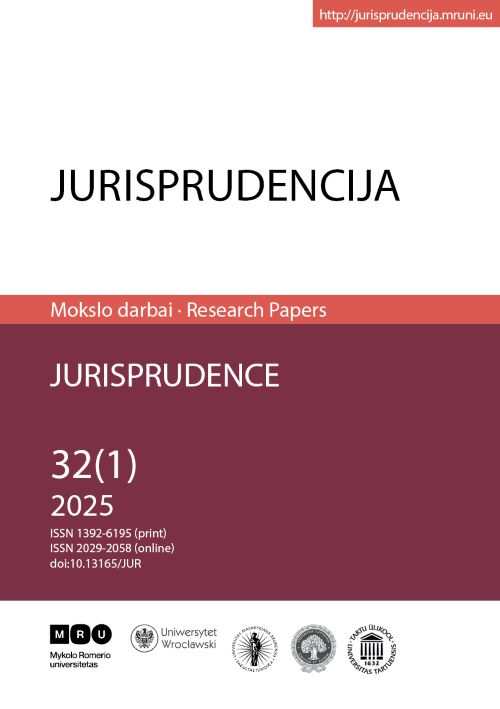THE CONSUMER’S RIGHT TO REPAIR AND ITS IMPLEMENTATION IN EUROPEAN UNION LAW
##plugins.themes.bootstrap3.article.main##
Abstract
One of the goals of the circular economy is to ensure that products are durable and can be used for a longer period, creating legal and economic conditions for consumers to participate in the circular economy. This article discusses the right to repair, examining the legal measures of the European Union and Lithuania, case law, and sustainable policies. Based on the opinions of various scholars, the right to repair can be described as a movement aimed at encouraging people to repair products rather than replace them with new ones. Although manufacturers often adopt a strategy of producing short-lived products that cannot be repaired, both the European Union and national governments are striving to find effective ways to prevent this. This article reveals the content of the right to repair, presents the European Union’s sustainable consumption initiatives, and evaluates various measures that could contribute to promoting the repair process of products in Lithuania.
Keywords: circular economy; consumer protection; right to repair; planned obsolescence; sustainable consumption.
##plugins.themes.bootstrap3.article.details##

This work is licensed under a Creative Commons Attribution 4.0 International License.
This is an open-access journal, which means that all content is freely available without charge to the user or their institution. Users are allowed to read, download, copy, distribute, print, search, or link to the full texts of the articles in this journal without asking prior permission from the publisher or the author. This follows the BOAI definition of open access. Authors contributing to Jurisprudence agree to publish their articles under a Creative Commons Attribution 4.0 International Public (CC BY) License (applicable from 2025).
![]() Authors retain copyright of their work, with first publication rights granted to the Association for Learning Technology.
Authors retain copyright of their work, with first publication rights granted to the Association for Learning Technology.
Please see Copyright and Licence Agreement for further details.







